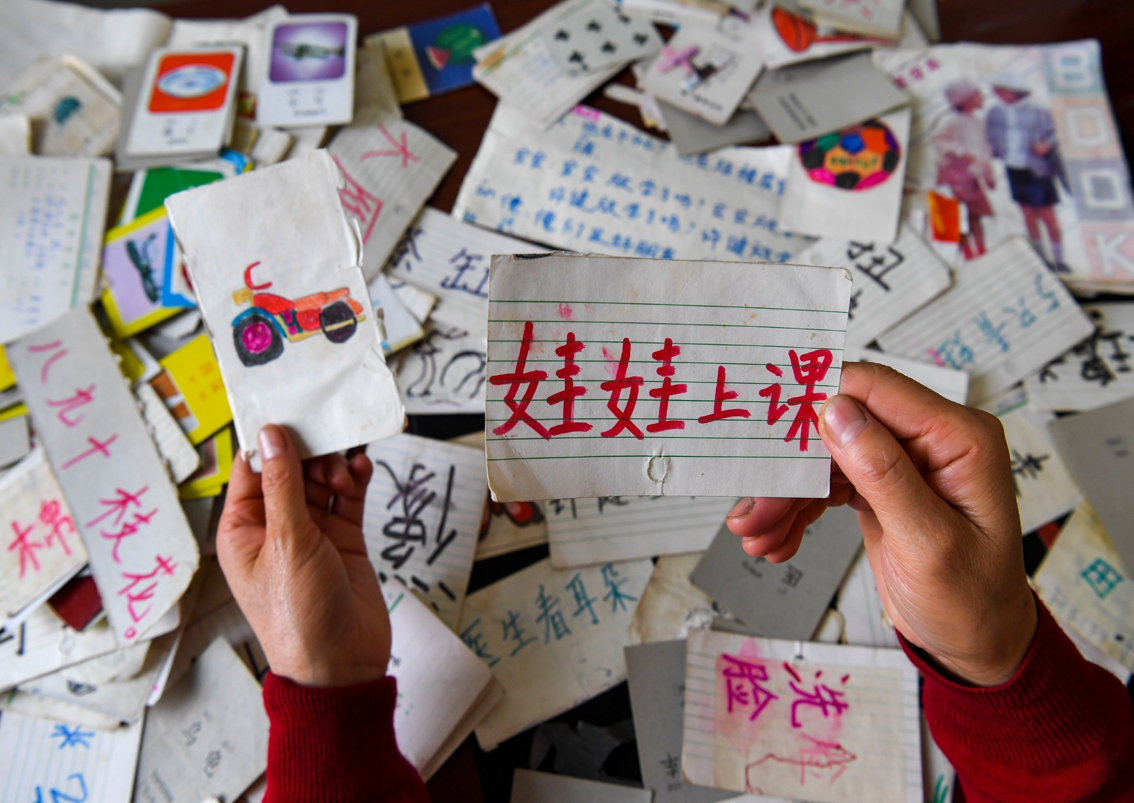Persistence gives disabled a voice
By Xue Yanwen | China Daily | Updated: 2018-11-23 09:51

Lu, born without hearing, was the couple's first special education student. Her parents said she hardly ever smiled and had behavioral difficulties. The first thing they needed to do was to rebuild her confidence. "We must be the cheering team. We must keep encouraging the kids," Xu Zhihong said.
They would reassure each child that they were not much different from others. "If you are nearsighted, you can wear glasses. If you can't hear, you can wear a hearing aid. You are just the same as everyone else," Xu Zhihong said.
Within six-months, Lu had made her first sound.
"Life is better than a textbook," Xu Zhihong said. They took the children to parks and fields and let them see, touch and smell everything.
Lu's success was their best advertisement. For a while their home was so crowded with children that they had to rent another house. Every day they got up at 7 am to go to work and wouldn't get to sleep until 2 am the next day.
After Xu Zhihong and Zhou established their center for the hearing impaired in 2007, the miracles kept happening.
Three-year-old Gulifila learned to sing 40 songs within three months. Six-year-old Ulan made his father cry when he learned to say "dad" in a month. Dandan, 16, managed to find a job after six months' training.
The local government granted the center special education school status in 2011. Today Xu, Zhou and 16 teachers, including Xu Jian and Kang, offer free education to 73 students.
Kang said: "Now my biggest wish is to do a good job. I want to learn more professional skills and, by combining them with my parents', to help more students learn to talk."
But Xu Jian said that one day he wants "a different job, a career of my own".
"I do love my students, but I want to try something different," he said. "But right now teaching at the special school is what I'm better at."
Xu Zhihong said: "Jian used to talk a lot about his life and his dream with me. But he doesn't talk about them so much today. I know what he really wants, and I feel sad about that. But today I can't help him with that any more."
Two of the children at the school, Nazray Tulusbek, 8, and her brother Alapar Tulusbek, 10, have been studying there for four years. Their father, Tulusbek Hamit, a herder, still remembers how difficult it was balancing the nomadic lifestyle with the needs of his children.
"I would have given anything to help them talk, even sell my flock," he said. He was advised to send the children to Xu Zhihong and Zhou's school.
One day, he arrived at the school to pick them up for the weekend.
"As I walked in, I heard Alapar call me 'dad'. It was just three weeks!" he said, adding that he asked his son to keep saying "dad" all the way back home.
In 2016, the brother and sister received government grants for cochlear implants that cost at least 140,000 yuan ($20,175) - a huge sum to a poor family.
Xu Zhihong and Zhou remain committed to helping children make the most of their lives.
"We must teach them to become real people," he said. "They must be taught that they are not a burden, and that they can be independent and kind, and live like everyone else."
Guan Qiaoqiao and Su Chuanyi contributed to this story























